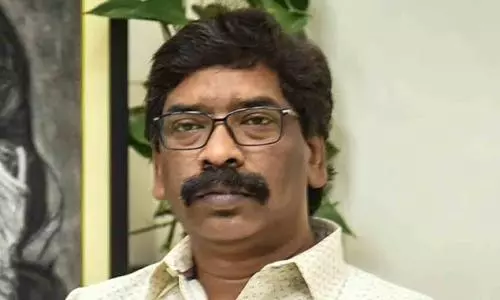
Kerala being inebriated again
text_fields'Left Democratic Front will adopt a policy of gradually reducing the availability and consumption of liquor. There will be bigger interventions from the part of the government than currently existing, to promote abstinence from liquor. To this end, extensive awareness campaigns will be launched, modelled on the literacy movement." This is an extract from the paragraph dealing with liquor policy of the manifesto of the LDF released during the run-up to the 2016 state assembly election.
The manifesto clearly underlines the social hazards caused by alcoholic beverages and ways to solve it. However, four years into its rule, the Pinarayi government has not been able to move an inch forward; in fact it went a few steps backward too. The liquor policy declared in the last week of February has also been moving along these lines. Given the steps taken including granting bar licence to hotels of three stars grade and above, one has to say that the government in fact moved from 'alcohol abstinence' to 'alcohol proliferation' . For the same reason, one cannot help saying that this policy has dented the progressive image made possible by the government in the sectors of education and health.
It is an easy guess that the government is prompted to take such a decision by the sole reason of netting a huge revenue through sale of liquor. Therefore, the government does not have any policy other than the sheer commercial strategy of letting as much liquor as possible to flow in order to boost revenue. Still the government never stops asserting that its policy is of abstinence from alcohol. This policy aims at eliminating liquor consumption totally through awareness drives under the title 'Vimukti' (meaning lilberation) against the use of intoxicating substances including liquor. But when the LDF government enters its fifth year in office, what is the balance sheet of this scheme? How many individuals have been saved from liquor through 'Vimukti'? The fact is that other than spending lakhs of rupees on advertisement, no positive advance has been made through it.
That is not surprising. For if the government's goal is abolition of drinking, the first step to take is to reduce its availability. But what the government has done instead is to make it widely available. Within three years, about 570 new bars have been opened. Even in this lockdown period, with limited alcohol availability, the government has not been able to achieve anything worth the name in this regard. When the first phase of lockdown was declared in the state, liquor shops were given relaxation. It was only at the face of of protests from various quarters that liquor outlets were shut down subsequently. Even then, the government tried a short cut of distributing liquor to addicts with the prescription of doctors. Only when that also failed was the way cleared for 'total liquor lockdown'. But then, the moment relaxations were announced for the lockdown, liquor shops were opened. It is when Kerala is confronting the bitter fact that the state has not yet tided over the threat of social transmission of corona virus that people are rushing to queue up in large numbers in front of liquor outlets.
As a matter of fact, the last two months was a golden opportunity to stop addiction and drinking habits. That was frittered away by the government, despite its past boasting of liquor abstinence. As part of the new habit taught by the lockdown period, even the severely addicted had a persuasive atmosphere to give up the bad habit. This is vouched for by the popular collctive of the Kerala Shastra Sahitya Parishat titled 'Capsule'. The survey it conducted among tipplers in Thiruvananthapuram found that half of the habitual drinkers did not think of short cuts to procure liquor. In other words, half of alcoholics had no issues even when they did not get it. And 13 per cent of the survey's participants also disclosed that they were turning teetotalers. Only 49 per cent were awaiting the end of lockdown to reach for the bottle.
The figures show that if liquor distribution were not included in the easing of lockdown, the number of people waiting would have gone down further. Mostly importantly, with the absence of liquor, 83 per cent of houselds had better peace and joy. Add to it the news report that in Alappuzha district, those who gave up drinking made a Whatsapp group and set apart the amount they used to spend on alcohol entirely for relief activities. But this peaceful atmosphere in households and outside crashed with the resumption of liquor shops. Within 48 hours from the resumption of alcohol sales, four murders were committed by drunkards let loose. Among those killed, there were a father, a mother and a friend. What else to call it than an inevitable tragedy from a lopsided policy!























